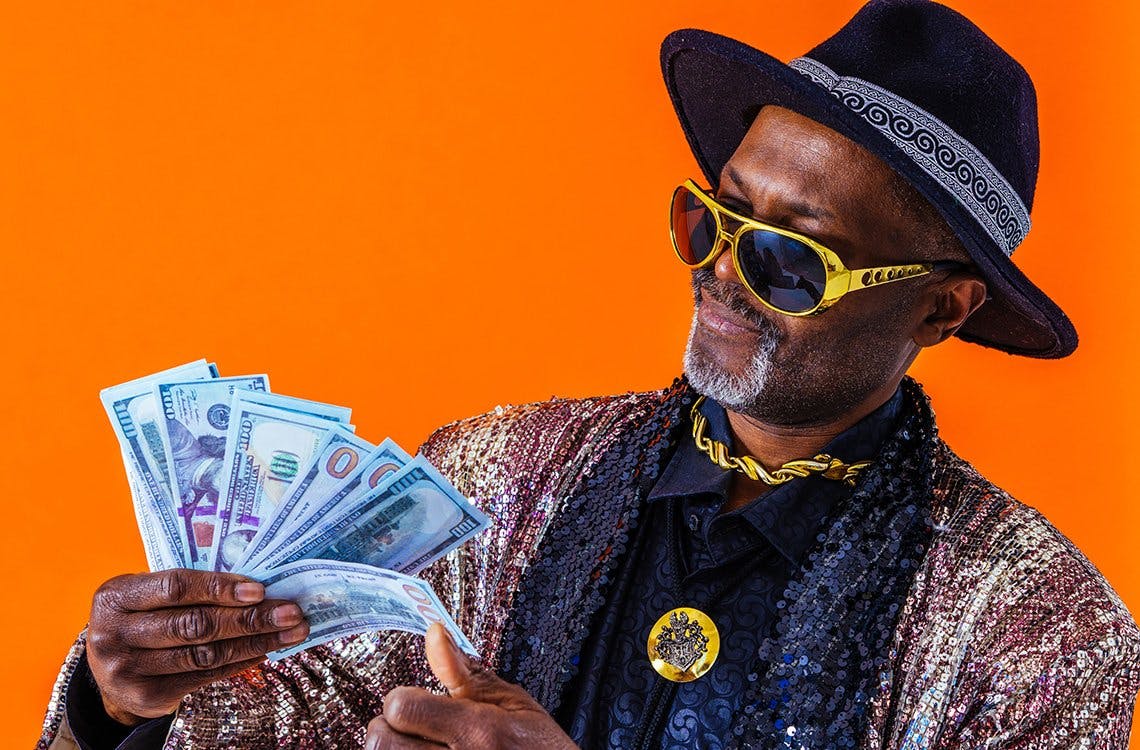
Cash Helps Balance Power
Cash is a public service, not a profit stream. It offers private, offline transactions to all—regardless of age or income—and serves as healthy competition for profit-making payment options. These societal benefits, as economist Brett Scott explains, mean ‘going cashless is not a conspiracy, but it is a bad idea.’
Scott, author of Cloudmoney: Why the War on Cash Endangers Our Freedom, is a staunchly pro-choice economic activist advocating for the protection and promotion of physical notes and coins. Writing for Aeon.co, he warns ‘the public has swallowed a false just-so story that says we are pining for a cashless society’ and people are afraid of ‘being left behind’ if they don’t engage with digital payments. He points out that a cashless society would be one in which all payments are privatised and power rests solely with the banking sector, and every transaction would be tracked and paid for twice: once in provider fees and again with personal data.
Cashless society authentically sucks. It’s a world where your kid cannot sell lemonade on the side of the road without paying Mastercard executives in New York. It’s an attack on privacy, autonomy, local independence and casual informal interactions in favour of dependence and centralisation of power in large institutions.
With this said, Scott explains the pressure on people to go cashless is not a worldwide conspiracy, but rather a result of collective forces such as companies wanting to cut costs (via automation) and introduce new revenue streams (in the form of transaction fees), and governments seeking options to more easily track and control spending.
The powerful corporations leading this [digital] takeover are themselves led by a larger puppetmaster, and this ‘puppetmaster of puppetmasters’ is no conspiring group of elites. It’s a system, and the dominant stories about digital progress are its ideology.
Within this system, banks are closing branches and ATMs and cashless payment providers are presenting an image of their services as the inevitable future of spending, and many individuals are simply adapting, shifting their behaviours to align with what is being presented as the new norm without first considering the cost of this supposed progress.
It’s businesses that remove our payment choice, but they rely on the fact that most middle-class people simply adapt their expectations and edit their memories to forget those old days when cash felt totally normal. Once new cultural norms are established, it compels compliance.
All hope is not lost. Cash can coexist with cashless options, empowering people with choice and serving as a vital backup when digital payments fail, whether due to service disruption caused by problems on the provider side, or local internet or power failures. Securing this future does, however, require buy-in and action from individuals to put pressure on companies and governments higher up in the system: use it or lose it, and speak up when it’s at risk.
The dominant tendencies in capitalism pull upon all of us but it’s possible to demand space for other values. It’s been done before. There was a time when the automobile industry seemed ascendant, and bikes were pushed off the roads, but we built a cultural movement to demand bicycle lanes. That’s why we should see cash as being like the public bicycle of payments, and support efforts across the political spectrum to protect and promote it... We need to promote a healthy balance of power between different forms of money in the system, and that’s within our collective political abilities.
